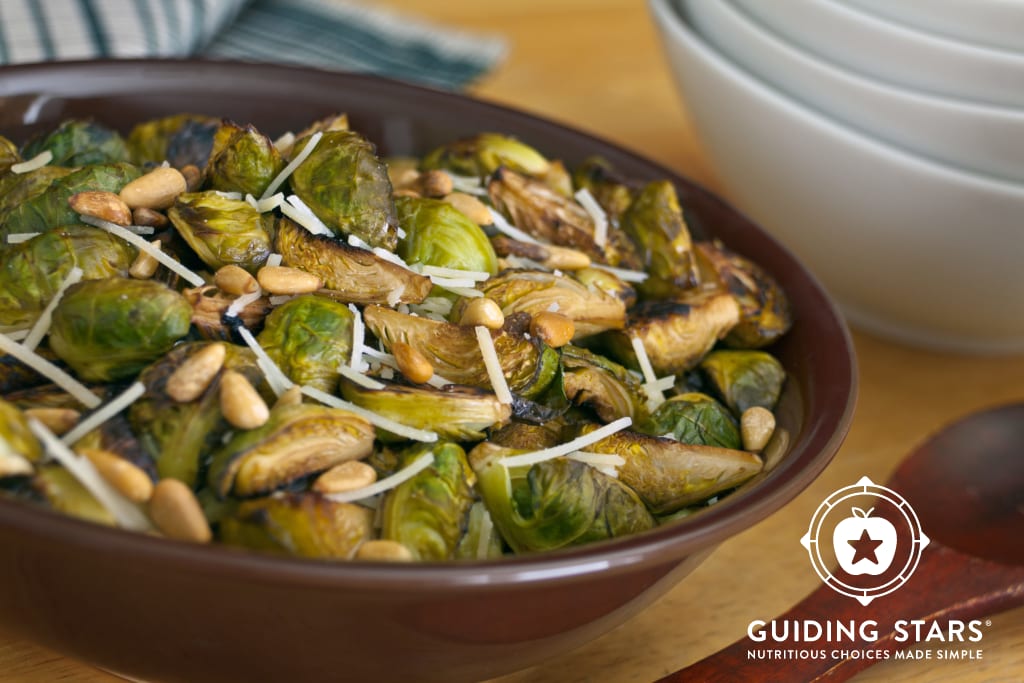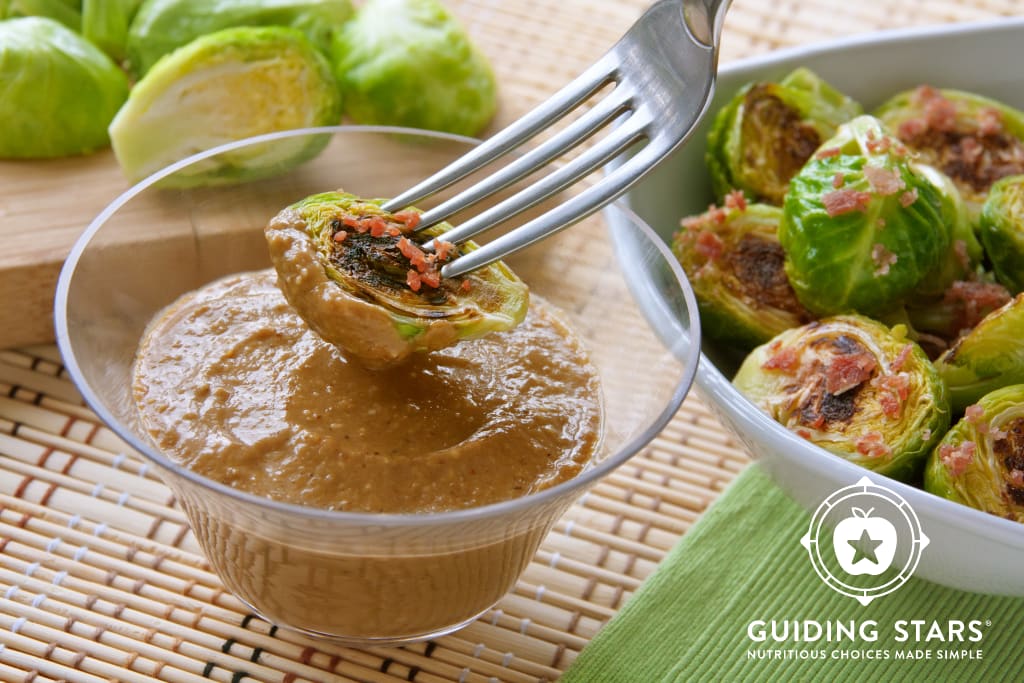
The first thing to understand about the bad reputation of Brussels sprouts is that it used to be deserved. Farmers have been working hard, however, to develop varietals that taste better, which is one reason they’re experiencing something of a Renaissance. They can still be tricky to work with for textural and flavor reasons. When they come out well, however, they’re worth the effort. Try these tips to up your game:
Start with fresh.
Frozen are equally good for nutrition and earn the same number 3 Guiding Stars (which means they’re one of the foods that’s best for our bodies), but freezing also breaks down plant cells. This releases the bitter compound glucosinolate common to all cruciferous vegetables and also contributes to mushiness. Frozen work beautifully in casseroles or soups, but are not ideal for recipes that highlight sprouts as a standalone.
Roast or fry.
A little heart-healthy fat, like olive oil, is perfect to help get a crisp on the flat side of your Brussels sprouts when you’re roasting or frying, which are the best ways to draw out the flavors. Guiding Stars has a unique algorithm for helping you compare the nutritional benefits of different oils. Look for products that earn 1, 2, or 3 Guiding Stars to choose oils with good nutritional value.
Spicy Asian Brussels Sprouts
Brussels sprouts often stand accused of being bittery and mushy. Not today, friends.
View recipe »